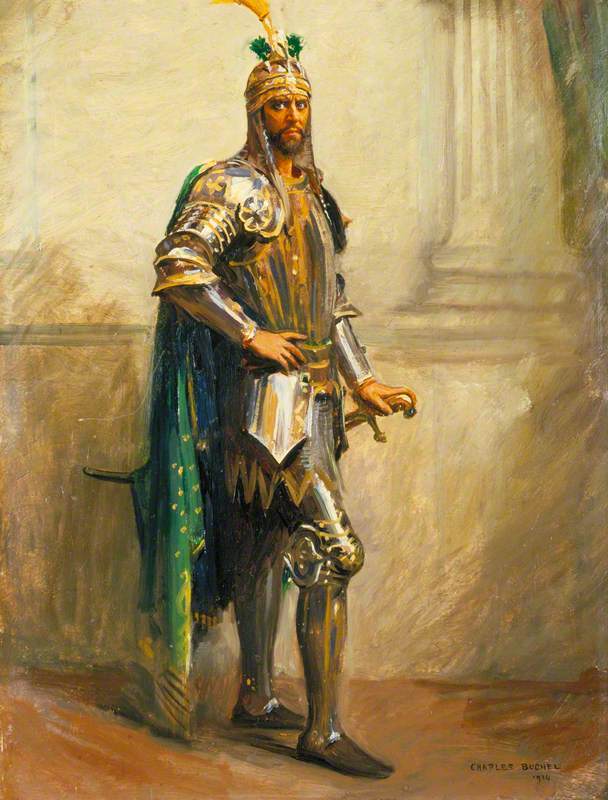

Igo never betrays his real nature, and not a trace of nervousness is visible in him even in the most dangerous moments of his plot when the least slip would have disastrous consequences. Iago is fully conscious of his intellectual superiority over others that he has grown contemptuous of the weak wills of others. They are Othello’s act of having sidelined him and promoted Casio to the post of lieutenant, Iago’s suspicion that Othello has been making love to his wife Emilia, and finally his presumption that he is in love with Desdemona. Against Othello, Iago suggests three grievances. His motives reveal the profundity of his revenge against Othello and others. I see this hath a little dasht your spirits.Analyzing the play William Shakespeare’s Othello a reader can easily find that the dramatist has presented Iago as powerful and intellectual villain. He thought twas witchcraft: but I am much too blame To seale her fathers eyes up, close as Oake, She that so young, could give out such a seeming, She did deceive her father marrying you:Īnd when she seem'd to shake and feare your lookes, Is not to leave't undone, but keepe't unknowne.

They dare not shew their husbands: their best conscience In Venice they doe let Heaven see the pranke Out of selfe-bounty be abus'd, looke too't:
#Shakespeare othello free
I would not have your free and noble nature, Weare your eie thus, not jealous, nor secure, Looke to your wife, observe her well with Cassio Receive it from me: I speake not yet of proofe, With franker spirit: therefore as I am bound To shew the love and duty that I beare you, I am glad of it, for now I shall have reason, Ile see before I doubt, when I doubt, prove,Īnd on the proofe, there is no more but this The smallest feare, or doubt of her revolt,įor she had eies, and chosen me: no Iago,

Nor from mine owne weake merits will I draw Where vertue is, these are more vertuous: Is free of speech, sings, playes, and dances well To say my wife is faire, feedes well, loves company, Matching thy inference: tis not to make me jealous, To such exufflicate, and blowne surmises, When I shall turne the businesse of my soule Is once to be resolu'd: exchange me for a Goate, With fresh suspitions? No, to be once in doubt, Thinkst thou I'de make a life of jealousie? Good heaven, the soules of all my tribe defend To him that ever feares he shall be poore: Poore and content, is rich, and rich enough,īut riches finelesse, is as poore as winter, Who dotes, yet doubts, suspects, yet strongly loves. Who certaine of his fate, loves not his wronger: It is a green ey'd monster, which doth mocke You cannot, if my heart were in your heart, Twas mine, tis his, and has bin slave to thousands:īut he that filches from me my good name, Who steales my purse, stealses trash, tis something, nothing, Good name in man and woman (deere my Lord) Nor for my manhood, honesty, or wisedome, It were not for your quiet, nor your good, Out of my scattering, and unsure observance As the son of an escaped slave, he knew racism and prejudice, and his outspoken left-wing politics saw him victimised by the US's anti-Communist authorities and media of the 1950s. Robeson was the first black actor since 1860 to perform the role in a major production. The audio clip available here is a 1959 Royal Shakespeare Company performance with African-American actor Paul Robeson (1898-1976) playing Othello. The play has also been the basis for numerous operatic, film, and literary adaptations.
#Shakespeare othello professional
Because of its varied themes - racism, love, jealousy, and betrayal - Othello is widely felt to remain relevant to the present day and is often performed in professional and community theatres alike. The work revolves around four central characters: Othello, a Moorish general in the Venetian army his wife Desdemona his lieutenant, Cassio and his trusted ensign Iago. Othello, the Moor of Venice is a tragedy by William Shakespeare believed to have been written in approximately 1603, and based on the Italian short story 'Un Capitano Moro' ('A Moorish Captain') by Cinthio, a disciple of Boccaccio, first published in 1565.


 0 kommentar(er)
0 kommentar(er)
